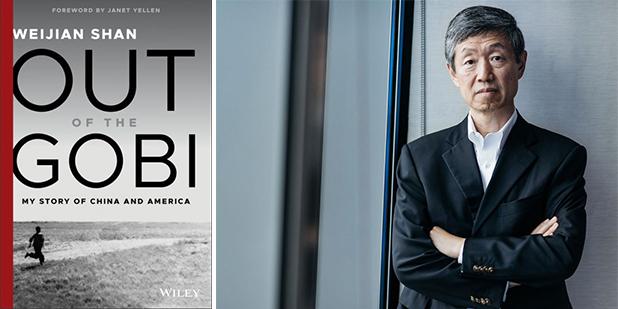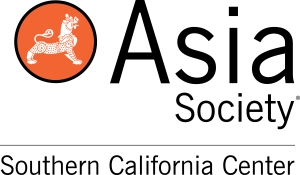Join us for a free one-day workshop for educators at the Japanese American National Museum, hosted by the USC U.S.-China Institute and the National Consortium for Teaching about Asia. This workshop will include a guided tour of the beloved exhibition Common Ground: The Heart of Community, slated to close permanently in January 2025. Following the tour, learn strategies for engaging students in the primary source artifacts, images, and documents found in JANM’s vast collection and discover classroom-ready resources to support teaching and learning about the Japanese American experience.
Out of the Gobi: My Story of China and America
Please join the USC U.S.-China Institute and Asia Society for a talk with Weijian Shan, one of Asia’s best-known financiers, as he recounts his remarkable personal story of his exile to the Gobi Desert for hard labor at the age of 15 amidst the turmoil of Mao Zedong’s Cultural Revolution.
Where

Click here to watch a recording of the presentation.
Foreword by Janet Yellen
Weijian Shan's Out of the Gobi is a powerful memoir and commentary that will be one of the most important books on China of our time, one with the potential to re-shape how Americans view China, and how the Chinese view life in America.
Shan, a former hard laborer who is now one of Asia's best-known financiers, is thoughtful, observant, eloquent, and brutally honest, making him well-positioned to tell the story of a life that is a microcosm of modern China, and of how, improbably, that life became intertwined with America. Out of the Gobi draws a vivid picture of the raw human energy and the will to succeed against all odds.
Shan only finished elementary school when Mao Zedong's Cultural Revolution tore his country apart. He was a witness to the brutality and absurdity of Mao’s policies during one of the most tumultuous eras in China’s history. Exiled to the Gobi Desert at age 15 and denied schooling for 10 years, he endured untold hardships without ever giving up his dream for an education. Shan’s improbable journey, from the Gobi to the “People’s Republic of Berkeley” and far beyond, is a uniquely American success story – told with a splash of humor, deep insight and rich and engaging detail.
This powerful and personal perspective on China and America will inform Americans' view of China, humanizing the country, while providing a rare view of America from the prism of a keen foreign observer who lived the American dream.
Says former Federal Reserve chair Janet Yellen: “Shan’s life provides a demonstration of what is possible when China and the United States come together, even by happenstance. It is not only Shan’s personal history that makes this book so interesting but also how the stories of China and America merge in just one moment in time to create an inspired individual so unique and driven, and so representative of the true sprits of both countries.”
About the Author
Weijian Shan is Chairman and Chief Executive Officer of PAG, a private equity firm. Prior to PAG, he was a Partner of TPG, a private equity firm based in San Francisco, and Co-Managing Partner of TPG Asia (formerly known as Newbridge Capital). Mr. Shan led a number of landmark transactions, including the acquisitions of Korea First Bank and China’s Shenzhen Development Bank, both of which made his investors billions of dollars in profits and were made into case studies at Harvard Business School. He previously was a Managing Director of J.P. Morgan, professor at the University of Pennsylvania’s Wharton School and a farm laborer in China’s Gobi Desert in Inner Mongolia. Mr. Shan holds an M.A. and a Ph.D. from the University of California, Berkeley and M.B.A. from the University of San Francisco. He studied English at the Beijing Institute of Foreign Trade (now Beijing University of International Business and Economics), where he also taught as a faculty member.
The book will be available for purchase and signing at the event.

Get off at the Expo Park/USC stop for a short walk to campus. Click here for more information.
For maps and directions to campus, visit the University Park Campus Map & Driving Directions page.
McCarthy Way Parking Structure - $14/day
Enter at the Figueroa Street Entrance at McCarthy Way
This event is co-sponsored by Asia Society Southern California.

Featured Articles
Please join us for the Grad Mixer! Hosted by USC Annenberg Office of International Affairs, Enjoy food, drink and conversation with fellow students across USC Annenberg. Graduate students from any field are welcome to join, so it is a great opportunity to meet fellow students with IR/foreign policy-related research topics and interests.
RSVP link: https://forms.gle/1zer188RE9dCS6Ho6
Events
Hosted by USC Annenberg Office of International Affairs, enjoy food, drink and conversation with fellow international students.
Join us for an in-person conversation on Thursday, November 7th at 4pm with author David M. Lampton as he discusses his new book, Living U.S.-China Relations: From Cold War to Cold War. The book examines the history of U.S.-China relations across eight U.S. presidential administrations.




